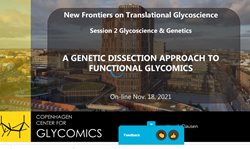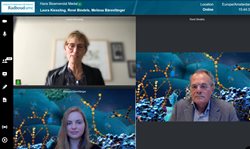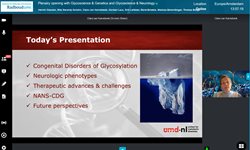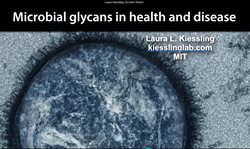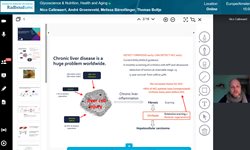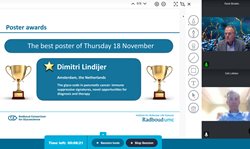Summary The impact of Glycoscience for future personalized medicine
The biannual New Frontiers series of the Radboud Institute for Molecular Life Sciences present the latest scientific developments of a chosen field of research and their potential for medical translation. The 2021 New Frontiers symposium on November 18-19 was on Translational Glycoscience. The human glycome has a major impact on every aspect of life sciences, from developmental biology to new forms of personalized diagnostics and therapy. After the genome, and proteome, the glycome presents a new perspective on human biology and disease by post-translational modification of proteins and lipids. read more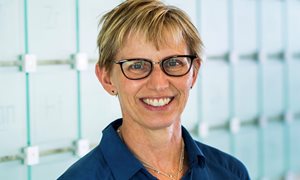
Hans Bloemendal Medal 2021 for Laura Kiessling
The Hans Bloemendal Medal for 2021 is awarded to Professor Laura Kiessling, in recognition of her groundbreaking work on carbohydrate-mediated interactions in cell-cell recognition and signal transduction.
Laura Kiessling is a Novartis Professor of Chemistry at the Massachusetts Institute of Technology. MIT is also the place where she started her scientific training in chemistry. She continued her education in organic chemistry doing her PhD at Yale University. After being an American Cancer Society postdoc at California Institute of Technology, she became a professor in chemistry at the University of Wisconsin-Madison in 1991 and was director of the Keck Center for Chemical Genomics. She moved back to MIT in 2017.
She has made seminal contributions to the fields of organic synthesis, polymer chemistry and molecular biology. In addition to synthesis of glycosyl donors, modified peptides and glycopolymers, she exploits these molecules to probe carbohydrate-mediated interactions in cellular recognition and signal transduction processes. Her finding that multivalent ligands can influence receptor-ligand binding and active signaling to target immune responses has opened the way to targeted immunotherapy and other treatments.
A vast list of awards and memberships illustrates the appreciation of her research contributions by the broad scientific community. On top of that, she served as the founding editor-in-chief of ACS Chemical Biology and contributed to the education of many young chemists and biochemists. Her dedication to teaching is exemplified by the position she held previously as director of the National Institutes of Health Chemistry-Biology Interface Training Program.
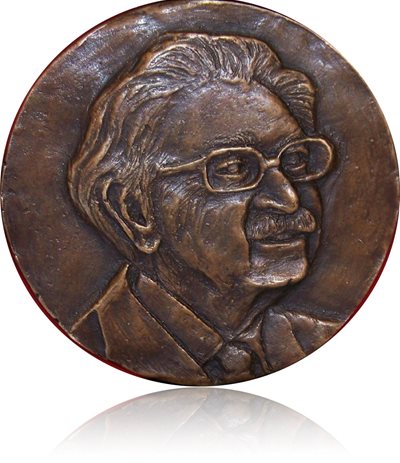

Poster prizes Prize winners 2021
Also this year a poster session was organized during the 2 day-symposium. A jury awarded the poster on glycoscience and the public voted two best posters. All received a certificate and an amount of money.
The prize winners of 2021 are:
The best poster category “Translatonal Glycoscience'':
- Damián Pérez Martinez, CIC Biomagune, Spain. Design and Synthesis of N-glycomimeDcs with high affinity for DC-SIGN
The best poster of Thursday 18 November:
- Dimitri Lindijer, Amsterdam, the Netherlands. The glyco-code in pancreatic cancer: immune suppressive signatures, novel opportunities for diagnosis and therapy
The best poster of Friday 19 November:
- Federica Conte, Nijmegen, the Netherlands. A new plaform integrating metabolomics and 3D engineered heart tissue for functional and metabolic characterization and therapy-screening of metabolic cardiomyopathies in congenital disorders of glycosylation

Public evening on Metabolic diseases
About 170 people all across the Netherlands joined the public evening about metabolic diseases on November 17, 2021. The presentations and discussions focused on the forefront of developments in this field: genetic therapy. Speakers included Rick Wansink, who explained the various forms of genetic therapy, and Boelo Boelens jr., who shared his personal experience of living with a metabolic disease and how an experimental genetic therapy impacts his life. The audience gained more insight into different stages of the research towards genetic therapy, patients in four short presentations by Rachel Mijdam, Rosanne Ausems, Karlien Coene and Marion Brands.
Afterwards, researchers and clinicians debated on questions related to genetic therapy and received a lot of input from the audience at home. Would you take the risk of participating in a clinical trial using genetic therapy? Can you make this choice for your child? Would you travel to the United States or elsewhere to get a better therapy? But also: do researchers take into account the patients’ needs or the true impact of their research?
The lively discussions led to one conclusion: patients, researchers and clinicians need each other to make the most significant impact on healthcare. Therefore: to be continued?
The public evening on metabolic diseases was organized by Radboudumc and the patient organization VKS. The public evening was connected to the scientific symposium New Frontiers on Translational Glycoscience.
Please find here the review of the public evening by Dirk Lefeber. The review is published in this online Wisselstof VKS (in Dutch)

